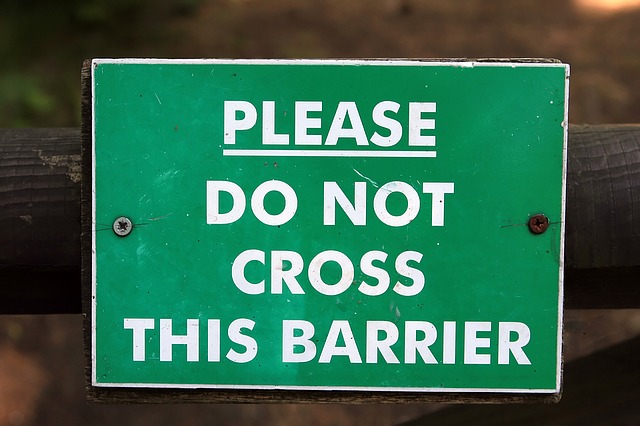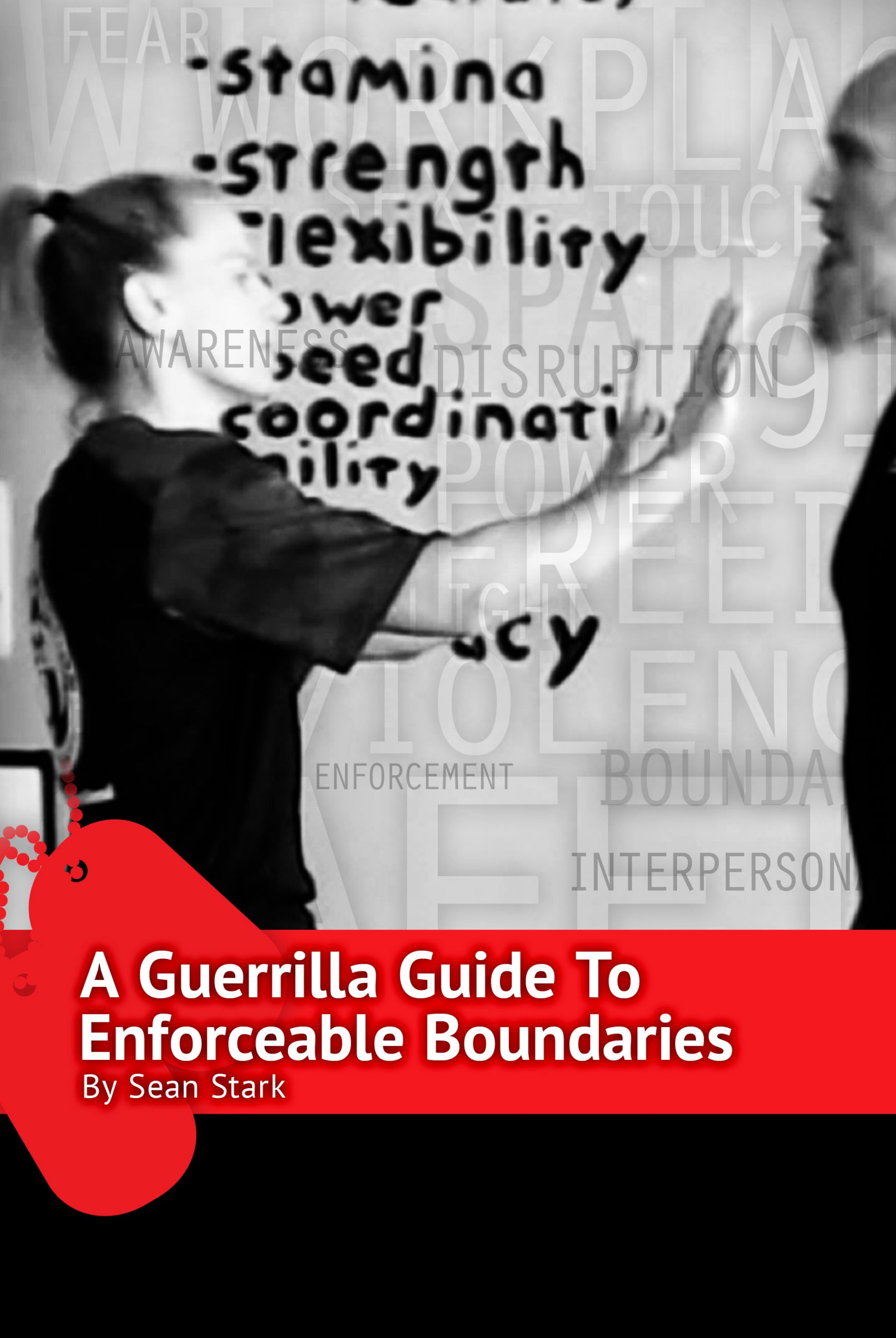
Recently, someone taking my Creating Enforceable Boundaries course sent me the following question. Rather than just respond to them individually, I felt it was a better use of time to address it on a larger scale. Particularly because it’s a question that has come up a few different times.
“I can create a boundary, but the other person has boundaries too.” Or “Sure, boundaries are important but I have boundaries too.”
This question typically arises in the two forms above. They are versions of the same thing. The first version from someone trying to be sensitive to relationships, and the second responding out of a defensive place from some historic issue, or even a traumatic experience they’ve had with someone else. Most often, when they haven’t had their own set of Enforceable Boundaries. To that end, I thought it was an excellent time to address it.
This can come from a fundamental misunderstanding of what boundaries do, and what they are for, so I want to address that first. The purpose of this post will not be to replace the need for the Creating Enforceable Boundaries course.
Often the way creating boundaries as a topic is presented, it is self focused. For the most part, it’s because the person in the discussion needs to learn to set them. They don’t have a history of setting or using them and therefore it’s very self focused. However, it’s a reality that boundaries impact the people around us. No doubt and that is not often dealt with very well at all.
The core of boundary setting comes down to this: You define the things you want in your life and the things you don’t want. Simple right? Yeah… it’s not quite that simple of course. There is much more to Creating Enforceable Boundaries, including principles, strategies and tactics you can use—particularly if you want to understand it for the context of personal safety as well.
Here’s a fundamental reality that is hard to grasp sometimes. They aren’t meant to control other people’s actions—except as it pertains to you. Which is exactly why people will bump up against your boundaries. There is absolutely no way to avoid this—and the primary reason you need to create enforceable boundaries.
So…..? How can that even work?
As it relates to personal relationships—the area where most of us really need this skill day-to-day, we need a little bit more. Especially in abusive and manipulative relationships or relationships with dysfunctional communication.
Let’s start by understanding that boundary setting works on both sides of the fence. If you have them, it’s likely others have them too. That means spouses, intimate partners, friends, co-workers, bosses, and everyone in your sphere. It’s entirely up to the other person to enforce their own boundaries just as much as it is up to you to enforce yours.
It’s myopic to think that you are the only person setting boundaries. It can even be a display of narcissism.
There is a lot covered in the Creating Enforceable Boundaries course that will help you work through this—particularly when combined with the book A Guerrilla Guide to Enforceable Boundaries.
Spend time reviewing the unit on Trust Transactions. Burrow into it. In short, it can mean that sometimes relationships can’t exist. That would be where you have boundaries that are non-negotiable and they pushup against someone else’s non-negotiable’s.
At other times it means you will need to be willing to reach a compromise. Compromise is always built on trust. Trust is a two-way street and requires communication. You may even need to utilize your Conflict and Threat Management skills to resolve it at times. Certainly self-regulation is a great starting point.
But guess what? Compromise can look different from day to day. Your needs may vary, as well theirs—daily. Sometimes it can mean that there will be conflict, frustration, and even anger. Boundaries aren’t a magic pill for all bad things. They are however, a fantastic place to reside.
One more thing that was an interesting peculiarity of a question that came in:
“I have a history of being manipulative to get my needs me and trying to discern what is manipulation and what is setting a boundary (I can’t “x” if you don’t “x” for example).”
It’s fairly easy to deceive ourselves when we have baggage and histories of abuse and dysfunctional communication. We will also fall back into old routines and old cycles of behavior far more easily rather than change them. It’s a hard fact. Particularly in a relationship dynamic.
It takes work to create good, healthy boundaries. Particularly when you have a history of trauma. And let’s remember that a good portion of the people around us also have a history of traumatic experience and even abuse and dysfunction.
Here’s a strategy you can implement to help. Ask yourself, “Am I demanding this today because I want to have my way—or is this a real non-negotiable?” Then follow it up with, “Am I being honest with myself right now?” Lastly ask, “How does this impact [the other person]?”
If you have any self-awareness at all, you will rarely be unable to identify when you are being dishonest with yourself or manipulative.
This question is really about the context of non-negotiable boundaries versus everything else. If it’s only enforced sometimes, it’s not a non-negotiable.
Even though your needs vary from day-to-day. The other people in relationship cannot be expected to bounce around whimsically every time that you have a particular change in your daily boundary needs. It may very well be a non-negotiable for them.
You accepted that contract when you began to go through trust transactions. If you’re in a more stable relationship then you’ve likely already established a compromise for this. You may need to suck it up. Or you may need to re-evaluate if this is really a non-negotiable.
Likewise, understand that your relationship partner (co-worker, boss, friend, lover) may be doing exactly the same thing or they may not desire any change in the relationship dynamic.
In the end, this process of growth and establishing or even re-establishing enforceable boundaries could very well change the dynamic of any relationship you are currently in. Particularly those built around dysfunctional patterns and cycles.
It is a far easier path to remain as you are, than it is to grow into a life of adventure and fulfillment. What will you choose?
Coach Sean



